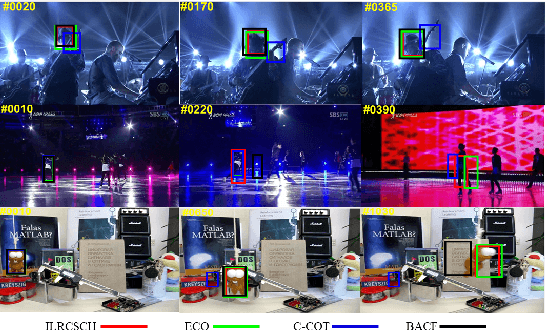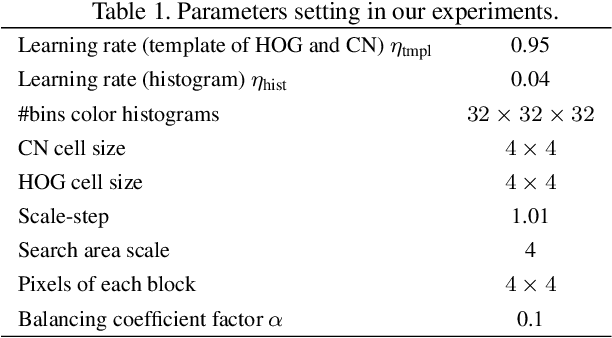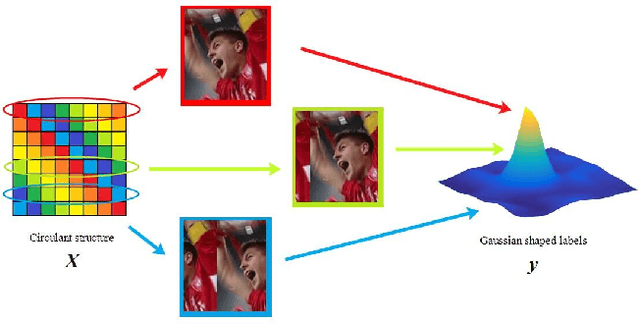Robust Visual Tracking via Implicit Low-Rank Constraints and Structural Color Histograms
Paper and Code
Dec 24, 2019



With the guaranteed discrimination and efficiency of spatial appearance model, Discriminative Correlation Filters (DCF-) based tracking methods have achieved outstanding performance recently. However, the construction of effective temporal appearance model is still challenging on account of filter degeneration becomes a significant factor that causes tracking failures in the DCF framework. To encourage temporal continuity and to explore the smooth variation of target appearance, we propose to enhance low-rank structure of the learned filters, which can be realized by constraining the successive filters within a $\ell_2$-norm ball. Moreover, we design a global descriptor, structural color histograms, to provide complementary support to the final response map, improving the stability and robustness to the DCF framework. The experimental results on standard benchmarks demonstrate that our Implicit Low-Rank Constraints and Structural Color Histograms (ILRCSCH) tracker outperforms state-of-the-art methods.
 Add to Chrome
Add to Chrome Add to Firefox
Add to Firefox Add to Edge
Add to Edge